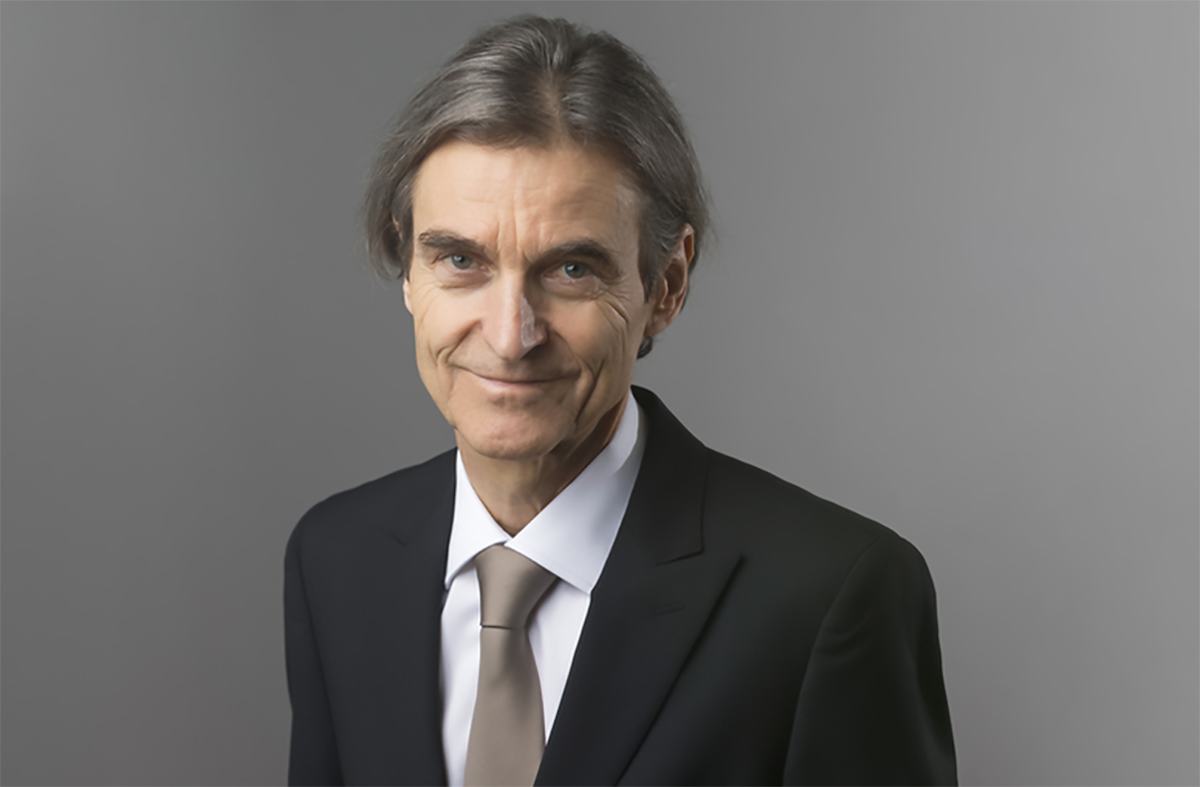
Thomas Knecht founded the >>venture>> competition 25 years ago. Now he is stepping down as president of the >>venture>> Foundation. We talked to him about the unique features of the competition, the collaboration between start-ups and corporates, and the latest progress in the Swiss start-up scene.
Mr Knecht, today >>venture>> is well established. You founded the competition in 1997. When did you realise that the breakthrough had been made?
Thomas Knecht: A former winner’s proof of concept was the first acquisition, when in 2005 Roche acquired Glycart for CHF 235 million. At that time, a jolt went through ETH: students realised that such stories happened not only in Silicon Valley, but that they themselves could establish companies that could be sold for hundreds of millions after a few years. The success of Tibits was also important: the company was very visible early on. The students were able to identify with the founders of Sensirion, Glycart, Esbatech, Molecular Partners and Tibits, to name just a few examples, more than with people anywhere else in the world.
Since the start, 1,000 companies have emerged from the competition, creating 15,000 jobs. The number of applications has more than tripled – from 100 per year to 350 – despite the many other awards and opportunities that have sprung up in recent years. What makes >>venture>> special today?
Our Advisory Board, which also makes the decision on the winners, is unique. Its members include the heads of large Swiss corporates and very successful former winners. You won’t find this anywhere else. The corporates also provide mentors from middle management who work with the founders. This is a reality check for the teams. What sets us apart is that mentors and jurors come directly from the business world and are the backbone of >>venture>>.
When it comes to collaboration with corporations, >>venture>> is a pioneer in Switzerland. How were you able to persuade large corporates to support the competition and the start-ups in 1997?
There was a paradigm shift: previously, research and development had to be done in-house. But then more and more companies began to understand that broadening the development base and thus collaborating with start-ups made sense.
Collaborations between start-ups and large companies are still considered difficult today. Based on your experience, what are the most important success factors?
It is difficult to formulate a general recipe. You really have to look at individual cases. Large companies have to be clear about the goals they want to achieve with the collaboration and implement them accordingly. Is it about a takeover, is it about adding a product to their range, is it about the joint development of a product? The process is different depending on the goal, but in any case it is demanding. In addition, the corporates have to understand that work in start-ups cannot be regulated down to the last detail; otherwise it will be suffocating. Above all, the key people in the start-up must be taken care of.
What are the most important lessons about the competition itself that have emerged over the last 25 years?
It quickly became clear that spirit alone is not enough to advance the start-up scene – it takes money too. That’s why I initiated the Venture Incubator at the end of the ’90s after >>venture>> – 10 large companies and ETH Zurich donated CHF 100 million to invest in start-ups. In addition, we realised how important it is to build an ecosystem that includes founders, mentors, jurors and, of course, investors.
Over the course of the 25-year history, there have been some adjustments. For example, the two phases of the competition were abolished. Why?
Today, writing a business plan is no longer a major hurdle for anyone; that’s why the preliminary phase is no longer needed. Another important innovation was the introduction of five verticals, since, for example, biotech start-ups have little to do with fintech. Last but not least, we significantly increased the prize money a few years ago in order to emphasise that >>venture>> is the leading start-up competition in Switzerland.
The keyword is verticals. At >>venture>>, classic deeptech start-ups have long been in the running; i.e. start-ups with very complex technology and strong patent protection. Last year, MapTiler, a software company, won. Are software start-ups better today or has the jury’s attitude changed?
Both. The last few years have shown that a software company can scale enormously even without patent protection if it grows fast enough. We are also getting more applications from software start-ups that pursue this strategy. Last year, the jury discussed the question of intellectual property, and then decided to award a company without patents as the winner. You could say that the start-ups and the jury have become more courageous.
Where do you see general improvements in the Swiss start-up scene over recent years?
Support has intensified. The Covid loan scheme for start-ups at the federal level was a success that would not have existed 10 or 15 years ago. The fact that federal councillors regularly give speeches at our award ceremonies is also an indicator of this. On the other hand, in terms of growth capital, we are still not where we could be.
You are now stepping down as president of the foundation after 25 years. What have been your personal highlights?
In addition to the track record with the new companies and the jobs created, one of them is that >>venture>> has not proven to be a flash in the pan. With the >>venture>> Foundation, we have a sustainable structure and with Ulrich Looser as my successor, we have the right person at the helm to continue >>venture>> successfully.
























































Please login or sign up to comment.
Commenting guidelines